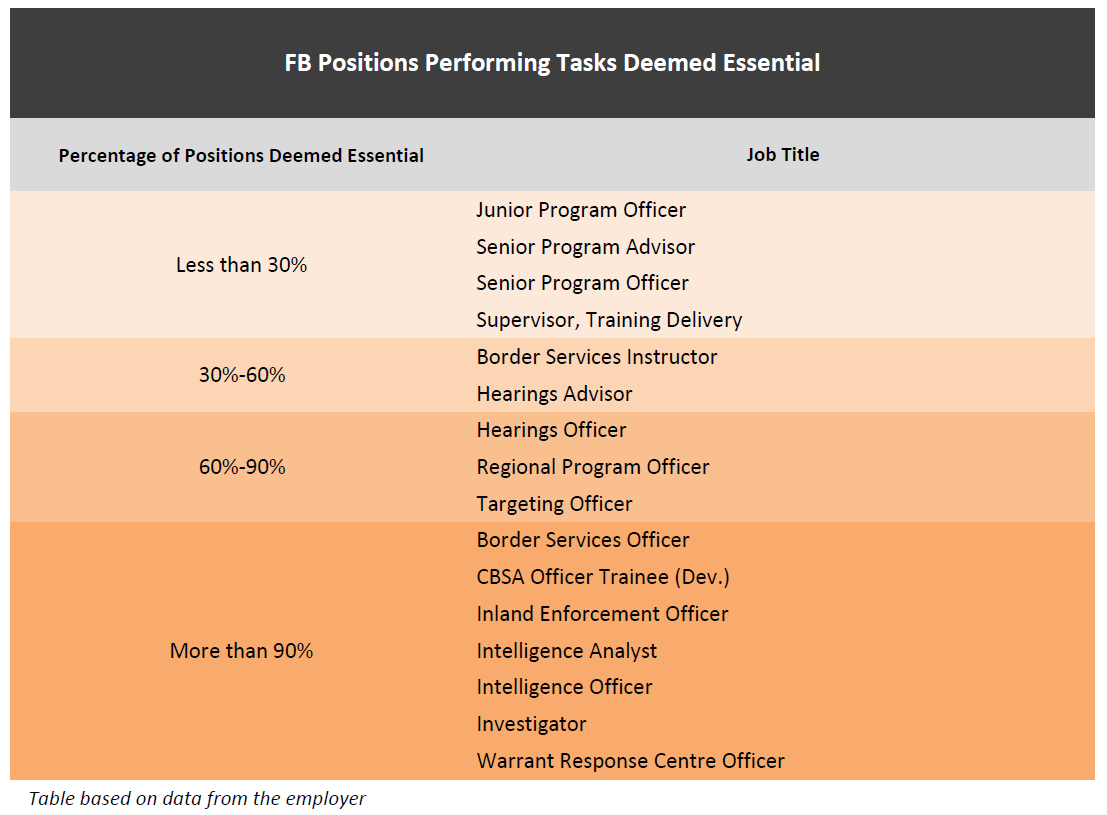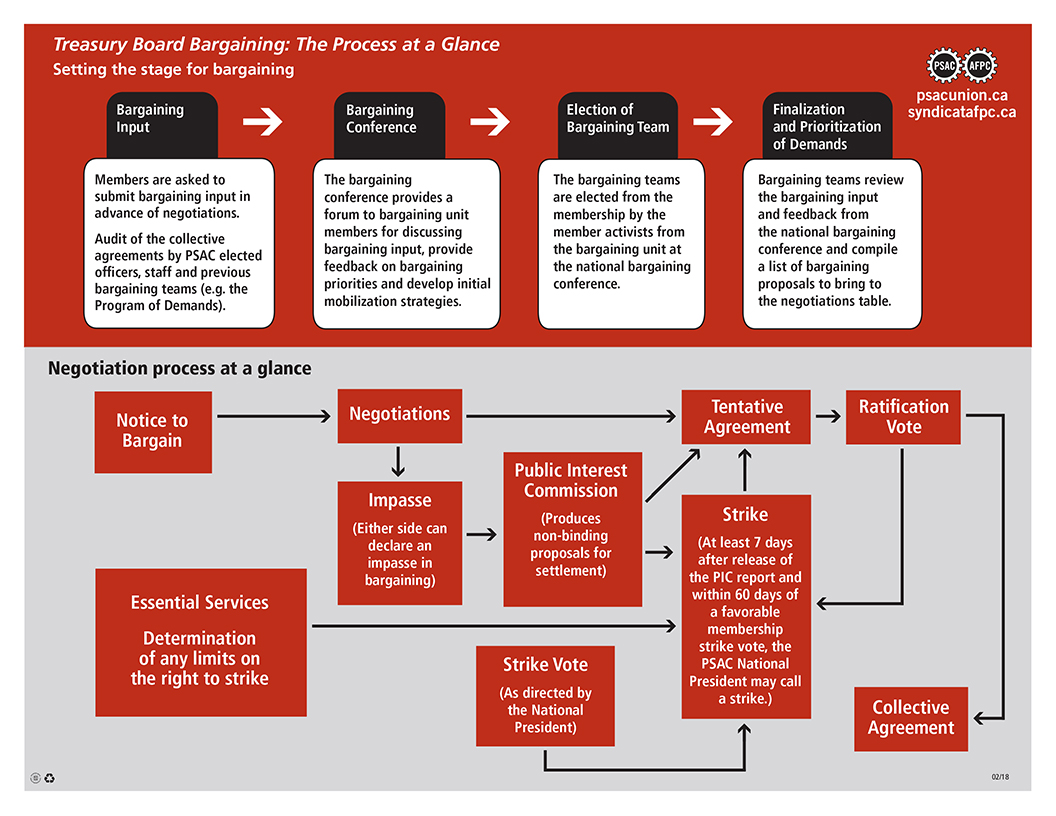With the possibility of a strike vote on the horizon, the Essential Services Agreement (ESA) requires some clarification. This is new territory for both the union and the members, with a first ESA in place since fall 2017 only. We are hoping that this information will help address questions you may have, and give a better idea of what is in store should a strike vote result in a strike being called.
As a starting point, please review the PSAC’s list of Frequently Asked Questions (FAQ) on essential services as ot addresses several important questions. Some of the information below reflects the FAQ.
Unlike essential designations that applied to a whole position, the ESA identifies services/duties that are necessary for the safety and security of the public. It is therefore possible to be in a position where none of your duties or where only some of your duties are deemed essential.
Again, it is important to note the association to the safety and security of the public. As an example, the PSLRB decision Public Service Alliance of Canada v. Treasury Board, 2009 PSLRB 155 clarifies which services performed by Border Services Officers are considered necessary for the safety of the public, and therefore essential. These are:
- Conducting inspections, examinations and verifications of travellers, goods and conveyances to reach release-or-entry decisions and deciding appropriate action when non-compliance is suspected or encountered.
- Providing a first-response capability with powers to arrest or detain individuals suspected of having committed offences under various Acts of Parliament.
- Maintaining effective relations, interactions and exchanges with clients, stakeholder organizations and law enforcement agencies to maintain border integrity and security.
- Analyzing data and information for inclusion in databases for use in client service, risk management and targeting people or goods to maintain border integrity and security.
- Completing briefing notes, technical reports, client files, statements and seizure reports to update databases to maintain border integrity and security.
Conversely, duties not deemed necessary for the safety of the public are not considered essential. Again, for BSOs, according to the 2009 PSLRB decision, these are:
- Assessing and collecting duties, taxes, fees and fines.
- Completing briefing notes, technical reports, client files and statements not related to maintaining border integrity and security.
- Providing information, through sessions, technical workshops and outreach activities to travelers, importers and exporters to educate them concerning the legislation, regulations and procedures of the CBSA and other government departments/agencies to encourage voluntary compliance and to respond to enquiries, concerns and service complaints.
Note that the example above applies only to BSOs – essential and non-essential duties can and will vary depending on the specific position. In all cases, however, the standard is the same: Duties are considered essential if they are necessary for the safety and security of the public.
The employer will be issuing ESA notices by email to members performing duties deemed essential.

Please refer to the image above for an overview of the proportion of positions that perform tasks deemed essential for the safety and security of the public, for each job title. For example, more than 90% of Inland Enforcement Officer positions are considered to be performing duties essential to public safety. This means that the vast majority of Inland Enforcement Officers will receive an ESA notice.
Finally, in terms of strike activities, members performing essential tasks cannot participate in strike activities while on duty, but can participate while off-duty, on their own time. Furthermore, members asked to perform non-essential duties should challenge management on such direction and contact their Branch President. If members are ordered, they should follow the “work now, grieve later” rule. If this occurs, members should write down the date, time, manager’s name and the duties performed and provide this to a Union rep immediately. Similarly, if a supervisor asks members to perform the duties of an employee who is on strike, they should say no. If then ordered, they should work, then grieve.
More information will follow.






















